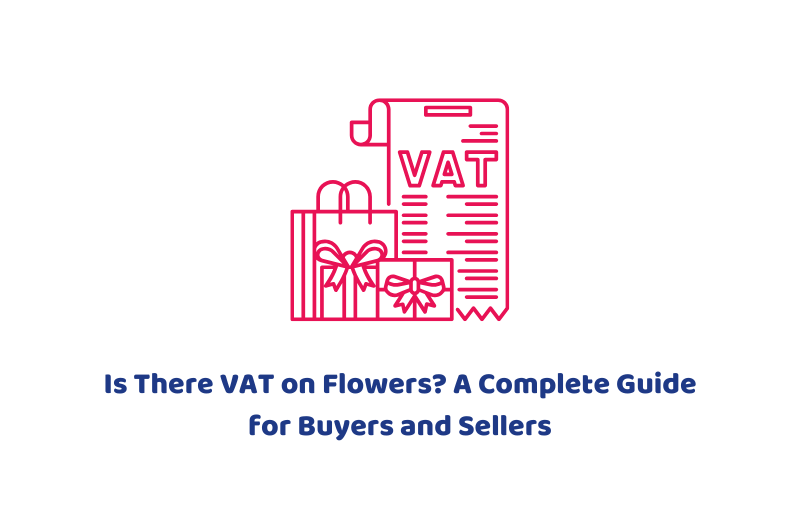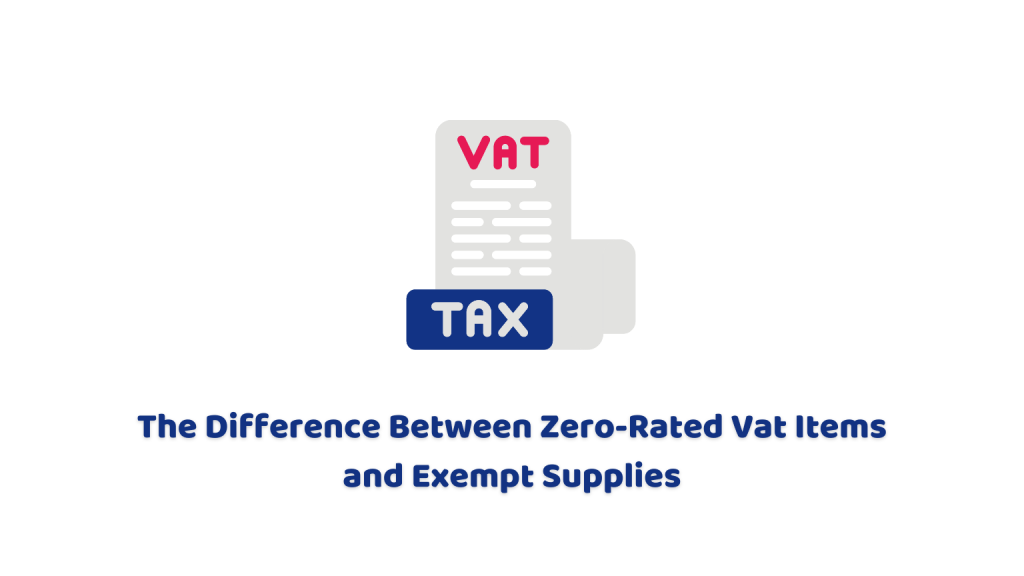Ever bought flowers and thought why VAT is added on it? When we buy flowers, we only notice its beauty and emotion. But what about the tax implications that are applied to it?
It depends on various factors, like where you buy them or what type of flower you buy.
In this article, we will talk about in detail about the application of VAT on flowers. Discussing its rules and exemptions, and the special cases on which it applies.
So, let’s get into it!
Reach out to one of our professionals to get to know about Online Accounting in the UK. Get in touch with us and you will be provided instant professional help!
Is There VAT On Flowers?
In the UK, VAT is charged on flowers based on their intended use. The standard VAT rate of 20% applies to cut flowers and ornamental plants. A 0% zero-rate applies to seeds and plants that are held out for sale for growing food for human or animal consumption.
VAT Rules For Sellers
- Registration for VAT is necessary for your business if your taxable turnover exceeds £90,000 within a 12-month period.
- The plants and seeds intended for food production can be zero-rated. This includes most culinary herbs and a specific, exhaustive list of flower seed varieties that are zero-rated, provided they are clearly and demonstrably held out for sale as food.
- Seeds for edible flowers that are not on this specific list remain standard-rated, even if marketed as edible.
- If you are selling a kit that includes both zero-rated seeds and standard-rated items like pot or fertiliser the VAT treatment depends on the value of the components.
- In the UK, flowers and most plants are charged at the general rate of VAT of 20%. This is charged on products such as cut flowers, bouquets, ornamental plants and seeds.
- Exceptions are some plants and kits for use in food production, which can be zero-rated under certain circumstances, including where the value of the standard-rated parts of a kit is below 10% of the overall price.
VAT Impact On Buyers
For buyers in the UK, the VAT treatment has a direct effect on the final price paid for flowers and plants.
- More expensive ornamental items: Since the standard rate of VAT is 20%, you’ll have to pay a premium final price for any non-food plant or bouquet.
- Lower costs for food plants: If you are purchasing plants with which to produce your own food, like fruit trees or vegetable seeds, the zero-rated status equates to your cost being less.
- Impact of business buys: If you are a business buying flowers or plants, for example, a restaurant buying floral displays, you can recover the VAT paid if you are VAT-registered. But for a private buyer, it is an outright and inexorable cost.
Factors Influencing VAT On Flowers
Following factors influence the application of VAT rates on flowers:
1. Ornamental vs. Edible Use
HMRC guidance states that the way a product is packaged, labelled, or marketed determines its VAT liability. For a food-producing plant or seed to be zero-rated, it must be clearly “held out for sale” for human consumption.
2. Services Bundled With Flowers
The VAT treatment can be complex, when a service is included with the supply of flowers. This can include arranging a bouquet or providing a delivery service. In most cases, a florist’s services are standard-rated along with the flowers.
3. Business Registration Threshold
For buyers, the VAT-registered florist can charge the appropriate VAT rate that is typically 20% on ornamental flowers.
However for the sellers, the non-VAT registered business will not add VAT to its prices. But if their taxable turnover exceeds £90,000, they must register with HMRC and start charging VAT.
4. Flat Rate Scheme For Florists
Some small, VAT-registered businesses choose to use the Flat Rate Scheme to simplify their accounting.
Under this scheme, a florist pays a fixed percentage of their total VAT-inclusive turnover to HMRC. The businesses on the Flat Rate Scheme generally cannot reclaim VAT on their purchases.
5. VAT On Business Expenses
For a VAT-registered flower shop on the standard scheme of accounting, there is the option to reclaim VAT paid on purchases for business.
- Qualifying expenses: A florist is able to recover VAT on almost all purchases for the business, including flowers for resale, floristry materials (e.g., ribbon, vases), shop fittings, professional services, and advertising.
- Proof of purchase: Legitimate records, such as valid VAT invoices for every purchase, need to be kept in order to recover the VAT successfully.
VAT On Different Types Of Flowers And Plants
VAT is applied either on the basic standard rate of 20%, or it is zero-rated. Here is on which items they are applied.
Standard-Rated (20% VAT)
The 20% standard rate is applied on:
- Ornamental flowers and plants sold for their decorative effect, including cut flowers, bouquets, and houseplants.
- Ornamental seeds and bulbs for growing flowers and other ornamental plants are also standard-rated.
- Floral arrangements, and bouquets created by a florist are standard rated. If you buy a bouquet from a florist who is VAT-registered, the price includes 20% VAT.
- Any plants or produce held out for sale for a non-food purpose is standard-rated. Held out for sale, refers to how a product is advertised, labelled, and displayed.
- Herbs sold for medicinal, rather than culinary, are also standard rated.
Zero-Rated (0% VAT)
The rate zero-rated VAT is applied on:
- Food-producing plants like seeds, plants, bulbs, and trees that produce food for human consumption are zero-rated. Like, fruit trees, vegetable seeds, and strawberry plants are all zero-rated.
- Plants of culinary herbs such as rosemary, basil, and mint are zero-rated. If they are provided, they are held out for sale as culinary herbs.
- Seeds of edible flowers, such as nasturtium or calendula, can be zero-rated but only if they are clearly held out for sale as food.
- Grass seed sold for use as animal feed (fodder seed) is zero-rated. But grass seed for lawns or ornamental use is standard-rated.
VAT Exemptions And Special Cases
VAT Exemptions vary accordingly to the specific scenarios. It is essential to have knowledge of each of them to avoid any hidden or unexpected costs.
In the UK, there are certain exemptions and special cases applied to goods and services. This can include flowers and plants.
VAT On Charity Flowers
A charity that buys flowers, either for display purposes or as products to be sold, will typically pay the normal 20% VAT. The following are applicable to the manner in which charities deal with VAT on flowers:
- Purchases are normally standard-rated: When a charity buys flowers from a shop selling flowers, it will have to pay the normal VAT rate, since no special relief is applicable to flowers here.
- Fundraising events: Where a charity sells flowers as part of a qualifying fundraising event, the proceeds of the sale can be VAT-exempt if it qualifies as a fundraising event under HMRC rules (i.e. occasional and for charitable purposes).
- Zero-rated donated goods: When a charity sells donated goods (not purchased ones), the sales are zero-rated for VAT purposes, regardless of whether they are part of a fundraising event.
VAT On Flowers For Educational Purposes
In most educational settings, flowers are considered standard-rated goods, and no special VAT exemption applies.
- General school use: A school or college purchasing flowers for classroom display or general decoration will pay the standard VAT rate.
- “Closely related” supplies: Certain goods and services “closely related” to education may be exempt, but flowers are not seen as an essential item in the provision of education. This implies that a supply of flowers to a school or university is subject to the standard rate.
VAT On Flowers For Religious Use
Similar to charitable and educational purposes, religious use of flowers does not usually attract a VAT exemption.
The purchase of flowers for use in decorating a religious building or for religious ceremonies (e.g. weddings or funerals) is a standard-rated commercial transaction.
HMRC treats the supply of flowers by a florist as a commercial service, even if used within a religious framework. The florist has to charge the standard rate of VAT.
Other Special Cases And Rules
- Zero-Rated edible plants: Seeds and flowers used for cultivating edible plants or which are edible themselves are usually zero-rated. They include culinary herb seeds and some types of flower seeds meant for human consumption.
- Reclaiming VAT: For a VAT-registered business (such as a charity), recovering the VAT on flowers is possible provided the flowers are being consumed for a “taxable” business purpose.
- Taxable use: Where flowers are purchased for a taxable use, for example resale by a VAT-registered business, the VAT is recoverable subject to the usual rules.
- Exempt use: Where flowers are for a VAT-exempt purpose, for example a charity fund-raising event, VAT paid cannot be recovered.
Misconceptions About VAT on Flowers
There are different misconceptions about the applications of VAT on flowers. Here are some of them:
1. Misconception: All Plants Are VAT-free Like Most Food Items
Reality: The zero-rating for food and plants only applies if they are explicitly grown and sold for human or animal consumption.
2. Misconception: Small Florists Do Not Need To Worry About VAT
Reality: Since a florist with a turnover below the mandatory registration threshold does not have to register, they can still choose to do so voluntarily. If the turnover exceeds the threshold, registration is compulsory, and they must charge VAT on all taxable sales.
3. Misconception: VAT On Delivery Is Separate From VAT On The Flowers
Reality: For VAT purposes, delivery is a part of the overall supply of the goods. Therefore, the delivery charge carries the same VAT rates as the item being delivered.
4. Misconception: Funeral Flowers Are Exempt Because They Are For a Funeral
Reality: The VAT exemption for funeral services covers only specific arrangements made by the undertaker. Separate goods and services, such as floral tributes, are standard-rated and subject to VAT.
5. Misconception: Edible Flowers Are Always Zero-Rated
Reality: Edible flowers and seeds are only zero-rated if they are held out for sale as food for human consumption. If they are sold for ornamental purposes, they are standard rated.
Bottom Line
So by concluding this topic, we talked about the application of VAT on flowers in detail. Its application usually depends on its type. Also it has some common misconceptions and special cases.
By understanding these rules, buyers can make informed decisions and appreciate the beauty of flowers without any hidden costs.
Need help? Cheap Accountants In London are available to guide you more on VAT on flowers. Stay in touch!
Disclaimer: All the information provided in this article on Is There VAT on Flowers? A Complete Guide for Buyers and Sellers, including all the texts and graphics, is general in nature. It does not intend to disregard any of the professional advice.




